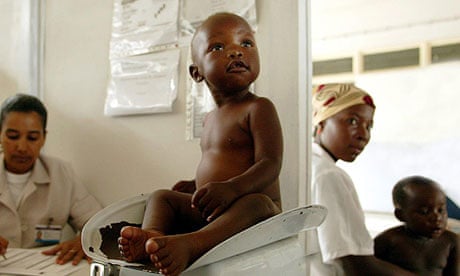Optimism over the new malaria vaccine being tested in Africa could be set to fall after results suggested its effect could reduce over time and that it disappears fastest in children who are most exposed to malarial mosquito bites.
Scientists point out that they will need to see the full results, from large-scale trials of thousands of children, before they really know how useful the vaccine – developed by GlaxoSmithKline and known only as RTS,S – will be.
But the tests follow a string of disappointing results, which have clearly shown how difficult it is to make a vaccine to protect against the disease, which kills more than 650,000 children, most of them very young, a year.
Last year a large-scale phase III trial showed that the vaccine saved only a third of babies aged six to 12 weeks old from falling ill. This is the age group that the vaccine is intended for, but the protection was lower than that which appeared in older children.
"The efficacy came back lower than we had hoped, but developing a vaccine against a parasite is a very hard thing to do," said Bill Gates, co-founder of the Bill & Melinda Gates Foundation and one of the research funders, at the time.
The latest findings, published in the New England Journal of Medicine, come from a smaller phase II trial that began in 2009 and was designed to assess safety and efficacy ahead of the large-scale phase III trials. It involved 447 children in Kilifi, Kenya, 320 of whom were followed up for four years.
The study found that the vaccine's effect wore off over time. It fell from 43.6% protection in the first year that children were vaccinated, to zero by the fourth. However, the authors say the vaccine did prevent many cases of malaria over those years.
"Despite the falling efficacy over time, there is still a clear benefit to the vaccine candidate. Many children will experience multiple episodes of clinical malaria infection, but overall we found that 65 cases of malaria were averted over the four-year period for every 100 children vaccinated," said the study's senior author, Phillip Bejon, research fellow at the KEMRI-Wellcome Trust research programme and the Centre for Tropical Medicine, Oxford University.
The vaccine's efficacy also declined faster in children who were more exposed to malaria than in those who had below-average exposure.
The results will help scientists work to improve the vaccine and possibly design better ones.
David Kaslow, director of the Malaria Vaccines Initiative, said it would be premature to draw conclusions as to the value of this vaccine at this point.
"Most vaccines wane in efficacy. I'm not surprised, and hopefully other people are not surprised," he said. "It has already been anticipated that children would be given a booster shot."
He also said there was a danger in being "over-fixated on efficacy". The real test was the public health impact; averting 65 cases for every 100 children vaccinated would have considerable public health benefits in regions with high malarial burdens.







